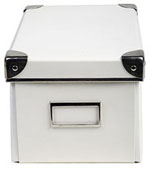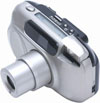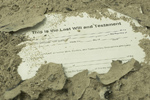This page contains the entire Organize Your Important Household Papers lesson to enable you to print a section or the whole lesson.
Return to the Organize Your Important Household Papers lesson.
Introduction
One of life’s most important lessons is distinguishing what is trivial from what is not. While we’re tempted to lump our personal documents among life’s petty details, their significance can be major. How quickly could we access our birth certificates, immunization records, wills, vehicular titles, or even three-month-old credit card statements? Did we file them away and, if so, where? How long would it take to find—or replace—them?
A systematic plan for keeping track of important papers can save hours of anxious searching. When something happens to us, it allows our loved ones to readily locate our health-care powers of attorney, insurance policies, medical records, and outstanding bills. If we experience fire, flood, or theft, we can lay our fingers on essential documents without delay. If we’re meeting with an attorney or financial adviser, we can prepare in an hour rather than a week. Even on an everyday basis, systematic recordkeeping makes it easier to pay bills on time, find receipts, and share paperwork chores. What’s not to like about that?!
In this lesson, you will:
- Identify and inventory important papers
- Organize your home office space
- Organize and/or replace important papers
- Set realistic goals for getting organized
How to Get Organized
Never search again for an important household paper. Organize your record-keeping system to save time and effort. Start now, with today’s papers. Forget the backlog of yesterday’s unfiled stacks, at least for now.
If you receive a bank or credit union statement this week and don’t yet have a file for storing your banking information, make one that’s labeled with the name of the bank or credit union. If you have space on the label, include the type of account (checking, savings, money market, etc.) and the account number. For example: ABC Bank–Checking #12345. Place your most recent statement in this folder. Later, add others in order of the month that you receive them.
Once you get started, organizing the rest of your household papers won’t be so difficult.
Share Record-Keeping Tasks
If there’s more than one responsible adult in your household, you can share record-keeping and bill-paying duties as long as you both agree who will complete certain tasks in a timely manner and communicate regularly about what’s been done.
In many households, one adult may be better-suited to record-keeping and financial tasks. If that’s the situation in your household, be sure to keep other family members informed and to show them — or a trusted friend — where your records are stored and how they’re organized.
Home Work Space
Many people do not have the luxury of a separate room to serve as a home office. So, determine a location in your home that works for you and your household. Some people want their home work space to be in the mainstream of family activity, such as a family room or kitchen. Others prefer a quiet place, like a corner in a bedroom. Parents of young children sometimes set up their home office where they can keep an eye on the youngsters.
Whichever location you choose, make sure it includes a table, desk, or other flat work space as well as good lighting and a comfortable chair. A telephone and wastebasket should be nearby, as should a file box, drawer, or cabinet. Keep pencils, pens, paper, paper clips, tape, envelopes, stamps, and file folders handy.
Paper Handling & Filing
Whether you have a home office or a kitchen table for paying bills and keeping records, your job will be more difficult if you accumulate stacks of papers. As you open your bills or deal with important papers, it’s best to handle each one only a few times and to file it immediately. If that’s not possible, use a box, basket, or envelope to temporarily hold mail you don’t yet have time to open or papers you’ve gathered but haven’t yet sorted or processed.
If you can delegate some record-keeping tasks to someone else, you may want to provide them with a second box, basket, or envelope for the items they will process. Some people like to use a third container simply for papers that have already been handled and that need to be filed
Filing papers in labeled folders works best for most people. For ease of access, many people prefer the hanging style of file folder that can be suspended in file drawers or in any of the various plastic or cardboard boxes available at office supply stores. As you file each item, date it. If you decide to discard it instead, be sure to shred it or safely burn it if it includes sensitive information that could be misused by an identity thief.
Plan a system that will work for you — one that will help you make decisions easily.
Reduce Junk Mail

Most of us get a lot of junk mail. Don’t stack it or store it; pitch it into a conveniently located wastebasket or a paper-recycling container. To avoid identity theft, shred credit card offers and other papers that include personal information before you discard them.
To reduce the amount of junk mail you get, contact the Direct Marketing Association’s (DMA) Mail Preference Service and ask that your name be removed from mailing lists. The fee for this service is $1.00. To register by Internet, fill out an online form at https://www.dmachoice.org. Alternatively, print the mail-in form from the web site, fill it out, and send it in. Or, send the following information, with your $1.00 check payable to DMA, to Mail Preference Service, PO Box 282, Carmel, NY, 10512:
- First name, middle name, last name
- Address (including apartment number, if appropriate)
- City, state, zip code
- E-mail address
Because some mailings are prepared far in advance, allow 30-90 days for your registration to become fully effective. Although the typical consumer will see a great reduction in the unsolicited mail he or she receives, not all commercial mail will stop. Consumers will still get mail from companies with which they already do business, from non-DMA member companies, and from local merchants, professional and alumni associations, political candidates and office holders, and mail addressed to “resident/occupant.”
Through the Fair Credit Reporting Act, you can opt out of receiving unsolicited offers of “pre-approved” and “prescreened” credit cards and insurance policies by visiting the official Consumer Credit Reporting Industry web site at http://www.OptOutPrescreen.com or by calling 1-888-5optout. Using this web site, you can tell the credit-reporting companies Equifax, Experian, Innovis, and TransUnion not to provide your credit file to companies that want to offer you credit or insurance you didn’t request. That will keep your name off the lists these credit-reporting companies supply to creditors and insurers.
Emergencies
Because we never know when a natural or man-made disaster could strike, it’s important to plan for the possibility. For more information, see “Prepare Financially,” a resource developed by the American Red Cross and available at: http://www.redcross.org/museum/prepare_org/basic/finanprep.htm
Organize Important Papers
Which Papers to Keep
Important household papers include family, property, financial, and legal papers that legitimize and protect you, your family, and your estate. They document identification, ownership, legal and financial status, employment, education, and family history.
Take an inventory of your important household papers, which may include:
| Adoption papers | Insurance policies |
| Advisers and contacts lists | Investment records and pension plans |
| Baptism and confirmation records | Marriage certificates |
| Birth certificates | Medical records |
| Business ownership papers | Memberships and subscriptions |
| Citizenship and naturalization papers | Military records |
| Credit card information | Net worth statements |
| Death certificates | Passports |
| Debts owed and those to be collected | Patents and copyrights |
| Divorce papers | Powers of attorney |
| Easement papers | Property appraisals, deeds, and titles |
| Educational records | Safe-deposit box inventory |
| Employment records and identity cards | Social Security cards and numbers |
| Family history | Tax records |
| Financial accounts | Veterinary records |
| Funeral and burial plans and records | Warranties, guarantees, and owner manuals |
| Household property inventory | Wills and trusts |
| Income and expense records |
Knowing what you already have can help you decide which important papers you will need to start organizing and/or updating. For your convenience, fill out the Record of Important Papers interactive form (available in rtf format) and save it to your computer’s hard drive. Be sure to update the information at least once a year.
Keeping a list of important household papers can save you time and give you the peace of mind of knowing that you’re prepared. Properly completed and kept current, your Record of Important Papers can help you find records when you need them and be a guide to you or others in an emergency. Keep an extra copy of the completed form in a secure location outside your home and double-check it periodically against your working copy to make sure the two versions are the same.
Household Property Inventory
Among your important papers should be a household inventory — an itemized list of your personal belongings. Whether you are a homeowner or renter, an accurate household property inventory is a necessity. It provides information for:
-
- Recording the approximate value and identification details of items owned
- Purchasing homeowner’s or renter’s insurance
- Processing insurance claims
- Listing personal property and its value in a net worth statement
- Planning replacements of furnishings and equipment
- Planning the distribution of your estate
In case of a loss due to burglary, vandalism, or an insured peril, your insurance company will require a list of all items lost or destroyed. Reconstructing a list of belongings from memory is often difficult; it’s easy to overlook items that you’ve hidden away and even ones you use regularly.
Reduce your initial investment of time in preparing an inventory by photographing and/or videotaping your belongings. Refer to Household Inventory for more detailed information. You can enter your personal information into the Household Inventory Interactive Form (available in rtf format) and save it on your computer hard drive. List a description of each item, serial number, purchase date, original cost, and estimated current value. If you can’t find original purchase prices of household electronic equipment in your records, read newspaper classified advertisements or check the Internet for the value of electronic gear that is similar in age and features to yours. Record that information on your household property inventory list and keep it up-to-date. Store an extra copy of your inventory in a secure location outside your home and compare it periodically with the original to make sure the versions remain identical.
Where to Keep Papers
Important family, property, financial, and legal papers should be kept in the following locations:
-
- Wallet or Purse
- Home Files (including computer disks and jump drives)
- Safe-Deposit Box (or home safe)
Wallet or Purse
Some frequently needed items should be kept with you at all times. Your wallet or purse is the best place to store:
-
- Your driver’s license or alternative personal identification
- One or two credit cards that you use often
- Your health insurance or Medicare card (unless it has your Social Security number on it)
- Your blood type, organ donor card, and special medical information, including the name and telephone number of your family physician
Make sure all cards and other information are current.
Do not carry your Social Security card — or a Medicare card bearing your Social Security number — in your wallet or purse. A dishonest person could use your Social Security number, your birth date, and other information in your wallet to steal your identity. If you need to access your Social Security or Medicare card frequently, keep them in a secure place at home. If your driver’s license has your Social Security number on it, request an alternate number.
Wallets or purses can be easily lost or stolen. Photocopy items in your wallet or purse and keep the copies in a safe place at home. They will be useful if you need to replace any of the items and/or report identity theft.
Home Files
Current files contain papers that you need frequently. They should be located in the most accessible drawers in a file cabinet or desk or in the easiest-to-reach boxes. You can also store some of them on a computer hard drive that is backed up consistently to a computer disk or jump drive.
Examples: Bank and credit union statements, bills to pay and paid bills, medical information
Permanent files contain papers that you need less often. Because you don’t handle these papers frequently, you can store them in a less accessible file drawer or box — or perhaps in a binder or on a computer disk or jump drive that you can remove quickly in case of a fire, flood, or other emergency. Update these records annually or as needed.
Examples: Education records, employment records, and working copies of your household property inventory and Record of Important Papers
”Dead storage” files — perhaps a box or old file cabinet located in your attic, basement, or closet — are for records that are very rarely used but that may be needed one day.
Example: Past income tax records
Safe-Deposit Box
Information that is difficult or impossible to replace should be stored in a safe-deposit box or fireproof, waterproof, burglar-proof home safe.
Examples: Birth certificates, wills, real estate deeds, Record of Important Papers, household property inventory, back-up copies of other important papers
How Long to Keep Papers
Several factors determine how long it’s appropriate or necessary to keep important household papers. These include the paper’s origin or source, intended use, and required access. Consider these recommended guidelines:
Keep Indefinitely
Permanent or original records that do not change over time. Examples: Birth, marriage, death, adoption, military discharge, and naturalization papers.
Keep for Multiple Years
Records for proof of payment or transactions. Examples: Tax returns with documentary proof (keep for a recommended three to six years); title to a car until it is sold, transferred, or discarded; mortgage contract and receipts for home improvements until mortgage is paid in full and house is sold or all claims of major damage are settled; deeds until the property is sold or transferred.
Keep for One Year Minimum
Some files need only be kept annually and then safely discarded. Examples: Household budget; bank and/or credit union statements; homeowner or auto insurance policies until they expire and new policies are put into effect.
Keep Temporarily
Items that await an action to disqualify their further usefulness (usually less than a year). Examples: Credit card receipts until they are matched with the billing to be certain the charge was both legitimate and for the proper amount; billings until paid in full.
When to Update Papers
From time to time, some of your household papers and records will need to be updated. Make it a habit to review your important papers annually. It’s a good idea to set up the same time each year to do this — perhaps at tax time, during a holiday, or when you’re revising your annual net worth statement. You’ll want to add items to your household property inventory that you’ve purchased during the year and remove items that you’ve sold, transferred, or retired. Your attorney can help you decide if your estate plan needs updating. The birth of a child, marriage, death, and other significant changes also trigger the need to update important papers.
A systematic plan makes this task far less grueling than it might otherwise be — and it gives you the satisfaction of knowing that your records will continue to be in order as your life changes. Here’s where the Record of Important Papers comes in really handy!
Personal and Family Records
When changes occur, update your list of advisers, educational and employment records, and health and immunization records for yourself, family members, and pets.
Keep current insurance policies on file and review them for necessary or desirable changes, such as beneficiary designations.
Update educational records by getting a certified copy of all credits earned at any institution of higher learning.
Property Records
Update records of property improvements whenever those improvements are made; this information is needed when refinancing or selling your home and for tax purposes.
Review and file property agreements and contracts annually.
Update household property inventories at least once a year.
Financial Records
Update debit and credit card information when you secure new cards and cancel old ones.
Order a free credit report annually from http://www.annualcreditreport.com and keep a copy on file.
Update your annual net worth statement to help you assess your progress in reaching financial goals. Keep financial documents that indicate when you make changes in investment accounts.
Legal Records

Although you may change your will whenever you wish, there are three basic reasons to consider revising it:
- There has been a change in your life.
- There has been a change in the law.
- You have changed your mind about specific provisions (for example, including or excluding a friend or family member to be a beneficiary of your property).
Life events that may trigger the need to update your will, trust, living will, powers of attorney, or other estate- or end-of-life planning documents include:
- Birth of children or grandchildren
- Death of a loved one
- Changes in tax, estate, probate, or trust laws
- A major change in your financial circumstances
- Marriage or divorce
- Relocation to a new state
For example, if the person you designated for your power of attorney dies or if you decide to choose someone else, you’ll want to update that document.
You may need to change your living will if you move to another state, where legal provisions may differ from those in the state from which you moved.
Check and update your military service records when activated or annually (if you’re in the career service) and make sure your summary of benefits is accurate.
Every 10 years, update your passport.
How to Replace Papers
It can be extremely distressing when important household papers are lost, stolen, or destroyed. Take heart in knowing that you are neither the first nor the last to face the problem of replacing important papers.
Many household records are replaceable—some quite easily. For example, your insurance company can send you another copy of your insurance policies, and the institution that holds your checking account can usually send you copies of cancelled checks. However, replacing some important papers may be costly and troublesome. The more difficult and expensive a record is to replace, the safer its storage should be.
Next, you’ll find specific directions on replacing some of the more common important papers:
- Birth and death certificate
- Citizenship and naturalization papers
- Driver’s license
- Federal income tax return
- Insurance policies
- Marriage licenses, marriage dissolutions, adoption decrees
- Military discharge papers
- Passport
- Property deeds
- Savings bonds and notes
- Social Security card
- Vehicle title
- Your Will
Birth and death certificate
Birth and death certificates—typically prepared by physicians, funeral directors, other professional attendants, or hospital authorities—are permanently filed in the central vital statistics office of the state, city, or outlying area where the event occurred. Often, they’re kept by the state health department. To replace a birth or death certificate for a person who was born or died in your state, contact the main office of your county government and ask where the vital records are kept, or click on http://vitalrec.com/usmap.html and select your state. In some states, these records are even available electronically.
For a certified copy of a birth or death certificate, you’ll likely be charged a fee. You’ll also be asked to provide some basic information:
- Birth certificate: the name of the person born, date of birth, place of birth (city or county), father’s name, and mother’s name (including maiden name)
- Death certificate: the name of the person who died, date of death, and place of death (city or county)
For birth and death records outside your state, visit http://www.vitalrec.com/usmap.html. Click on the state where the person was born or died and follow the directions for ordering the document. The federal government does not maintain files of such records.
Outside the U.S.: For birth records of U.S. citizens born abroad, write for replacement Form DS-1350 (Certification of Birth), which contains the same information as Form FS-240, Consular Report of Birth Abroad. Contact:
- U.S. Department of State
- Passport Services
- Vital Records Section
- 1111 19th Street, NW, Suite 510
- Washington, DC 20522-1705
- http://travel.state.gov/passport/get/first/first_825.html
For a replacement FS-240, enclose a notarized affidavit by a parent or legal representative, including name, date, place of birth, and the whereabouts of the original form. The U.S. Department of State charges fees for processing both the DS-1350 and FS-240 applications.
You can also get a Report of the Death of an American Citizen through the above address.
Citizenship and naturalization papers
An Application for Replacement of Naturalization/Citizenship Document (Form N-565) is used to request citizenship and naturalization papers. You can download it from http://www.uscis.gov/portal/site/uscis/menuitem.5af9bb95919f35e66f614176543f6d1a/?vgnextchannel=db029c7755cb9010VgnVCM10000045f3d6a1RCRD&vgnextoid=a910cac09aa5d010VgnVCM10000048f3d6a1RCRD, write for a copy, or visit your nearest field office of the Bureau of Citizenship and Immigration Services. To find out which office is closest to you, access the USCIS Service and Office Locator on the Internet or call the customer service center at 800-375-5283. The sizable fee required to process the form can be paid only by check or money order.
Driver’s license
Go to http://www.dmv.org/drivers-license.php to view information about your state’s driver’s license laws. If you prefer, contact the office responsible for motorized vehicles in your county or state. You may be asked for a birth certificate (or two other forms of identification with your full name and date of birth) as well as for a fee.
Federal income tax return
For copies of federal income tax returns, call the nearest office of the Department of the Treasury or Internal Revenue Service and ask for Form 4506 (Request for Copy or Transcript of Tax Form). To speak with an IRS representative, call 800-829-1040.
You can reach the Taxpayer Advocate Service by calling 877-777-4778. See Publication 1546 (“The Taxpayer Advocate Service of the IRS”).
Insurance policies
To replace lost or destroyed insurance policies, contact the agent or company that provided you with the coverage. You may need to complete a form (including the policy number), pay a fee for duplicate copies, or both.
Marriage licenses, marriage dissolutions, adoption decrees
In your state: To replace marriage licenses and marriage dissolution or adoption decrees, contact the main office of the county government in which the license was obtained, the marriage occurred, or the dissolution or adoption was filed and ask where these records are kept. If you’re not sure which county the original document was issued by, contact the office in your state where these records are kept (typically the Bureau of Vital Statistics in the Department of Health). There will be a charge for replacing these records, usually due at the time of the request. You will likely be asked to provide name(s) on the record, date of the event, and location of the event (city or county). You may also be able to request replacements electronically via http://www.vitalrec.com/usmap.html.
Out of state: If the marriage, dissolution, or adoption occurred outside your state, contact the District Court of the county in which the event took place or the state’s Bureau of Vital Statistics. Alternatively, visit http://www.vitalrec.com/usmap.html.
Military discharge papers
To obtain copies of military discharge papers, request Standard Form 180 (SF-180) from any office of the Veterans Administration, American Legion, Veterans of Foreign Wars, or Red Cross or from other veterans associations or military recruiters. You can also download Standard Form 180 from the National Personnel Records Center. Click here to download form SF-180. Send the completed form to:
- National Personnel Records Center
- Military Personnel Records
- 9700 Page Avenue
- St. Louis, MO 63132-5100
The National Personnel Records Center responds only to mailed, faxed, or online requests. Its fax number is 314-801-9195 and its Web address is http://www.archives.gov/research_room/vetrecs.
If your papers were recorded in the office of your county clerk at the time of your discharge, you can also contact that office directly for copies.
Passport
Lost in the U.S.: If your passport is lost or stolen in the United States, report the loss or theft immediately to the U.S. Department of State or nearest Passport Agency and to the local police. You can contact the State Department at:
- U.S. Department of State
- Passport Services
- Consular Lost/Stolen Passport Section
- 1111 19th Street, NW, Suite 500
- Washington, DC 20036
- Telephone (any time, day or night): 202-955-0430
- http://travel.state.gov/passport/forms/ds64/ds64_845.html
Lost abroad: If your passport is lost or stolen while you’re abroad, notify the nearest U.S. embassy or consular office as well as the U.S. Department of State (above).
Because a passport is a traveler’s principal means of identification abroad, its loss is very serious. To replace your passport, you must complete Form DS-11 (Application for Passport) and, if your passport had not expired, Form DS-64 (Statement Regarding Lost or Stolen Passport). Bringing along a photocopy of your passport’s front page will make this crucial document easier to replace while traveling.
Property deeds
In your state: If the property deed was recorded, contact the Registrar of Deeds in the county where the property is located. Copies are certified for a fee. If the property deed was not properly recorded, you may have to obtain a new deed from the previous owner.
Out of state: To replace lost or destroyed deeds, contact the clerk and/or recorder at the courthouse in the county where the property is located.
Savings bonds and notes
Savings bonds or notes that are lost, stolen, mutilated, or destroyed may be replaced free of charge as long as the Bureau of Public Debt can establish that they have not been cashed. To assure that the bonds can be traced, owners should keep records of bond serial numbers, issue dates, registration, and Social Security or taxpayers identification numbers in a safe place separate from the bonds.
To get your bond replaced, request Form PDF-1048 (Claim for Lost, Stolen, or Destroyed United States Savings Bonds) from a local bank or download it from http://www.treasurydirect.gov/forms/sav1048.pdf. You’ll need to fill in the approximate issue date along with complete names, addresses, the Social Security number that appeared on the bond, and the bond serial number. If you don’t know the serial number, write “unknown” in the space provided. The completed application should be signed by the owner(s) and others named in the missing bonds’ registrations, notarized, and sent to:
- Bureau of the Public Debt
- Office of Investor Services
- Parkersburg, WV 26106-1328
- Telephone: 304-480-6112
- Fax: 304-480-6010
- E-mail: savbonds@bpd.treas.gov
If the bond owner is a minor, the form should be signed by both parents, and the minor’s age and Social Security number should be included. Replacement bonds will bear the date of original issue.
Social Security card
To replace your Social Security card, fill out Form SS-5 (Application for Social Security Card). Use this form for a replacement card, to change the address in your Social Security file, or to change your name because of marriage or otherwise. To download this form, go to http://www.socialsecurity.gov/online/ss-5.html. If you need additional help, contact the Social Security Administration at 800-772-1213 or write:
- Office of Public Inquiries
- Social Security Administration
- Windsor Park Building 6401 Security Blvd.
- Baltimore, MD 21235
- http://www.ssa.gov/reach.htm
Vehicle title
In your state: Contact your county treasurer’s office or the Motor Vehicle Division. Usually, there is a charge for this service and the new form must be signed in front of a notary public.
Out of state: You can get the contact address in other states from your county treasurer, or visit http://www.dmv.org/drivers-license.php for information about vehicle titles in each state.
Your Will
If your will is misplaced or destroyed, contact the attorney who prepared it. If your circumstances have changed, a new will may be appropriate.
What are SMART Goals?
Most of us need a plan to achieve our wishes. A legal or financial plan of action starts with goals. Goal setting will help you plan, implement, and measure the progress of your activities. If you set SMART goals you’ll have a plan to achieve the legal or financial actions that are important to you and your family. SMART goals have several important criteria.
Start your goal list on the SMART Goal Setting Worksheet (available in rtf format). Remember to be specific and measurable, with a planned timeline for accomplishment. Be realistic in setting goals that you can actually attain.
SMART Goal Setting Techniques
When you first think of how to begin reaching your goals, you may feel overwhelmed. One way to achieve your goals is to break them up into smaller, more manageable, SMART tasks, which could be considered mini-goals.
- Short-Term (complete in less than three months)
- Intermediate-Term (complete in three to six months)
- Long-term (complete in a year or more)
Short-Term Goals
(Complete in less than three months)
A short-term record-keeping goal might be to write to an appropriate agency by the end of this week to obtain a copy of an important document. To make the goal more specific, indicate the name of the document (such as your birth certificate), the agency you will contact, and the dates when you’ll start and complete the task.
A short-term household inventory goal might be to videotape or photograph your household property this month. To make this goal more specific and measurable, list the rooms you will photograph and the dates you will complete each one. During the following month, use the Household Inventory Interactive Form (available in rtf format) to record the description, brand, serial number, purchase date, and price or estimated current value of major household items.
Download the Short-Term Goal Setting Worksheet (available in pdf format) to see how you can use it to plan for a short-term financial goal.
Intermediate-Term Goals
(Complete in three to six months)
An intermediate-term legal goal might be to work with an attorney to write your will. Break down the tasks, including some short-term ones. For example, get names of attorneys who specialize in wills and estate planning.
To make this goal specific, list the resources you will use to obtain attorneys’ names, addresses, and telephone numbers. (Refer to the Selecting an Attorney section of the Legally Secure Your Financial Future: Prepare learning lesson for more information on hiring and working with attorneys.) Set a deadline date for obtaining names, such as within the next two weeks. For a complete example of this intermediate-term goal, download the Intermediate-Term Goal Setting Worksheet (available in PDF format).
Another intermediate-term goal might be to complete forms for a living will and durable power of attorney for health care within four months. Information about living wills is available in the Legally Secure Your Financial Future: Communicate learning lesson. To make this goal more specific and measurable, list where you will get the forms and provide a deadline for completion.
Long-Term Goals
(Complete in a year or more)
An example of a long-term financial goal might be to reduce your credit card debt. Make the goal specific by listing the total amount of debt you plan to pay off and setting a deadline (month and year) to repay the debt. Make it measurable by listing each credit card that has an outstanding balance, the name of each credit card issuer, the annual percentage interest rate, and the amount owed on each credit card. Your goal will be mutual if other household members agree to work toward debt reduction.
What is your motivation for paying off this debt? Perhaps it’s to stop calls from bill collectors. Once you’ve written your goal to eliminate your credit card debt and identified key information about each credit card with an unpaid balance, it will be easier for you to prioritize which credit card you’ll pay off first and to develop your plan of action. Example #1: Organize Important Household Papers (available in pdf format) and Example #2: Debt Reduction (available in pdf format) illustrate how you can use short- and intermediate-term goals to achieve long-term goals.
Write and Visualize Your Goals
Put your plans into action with frequent goal reminders. That’s one reason for writing your goals. Post your Goal Setting Worksheet (rtf format) where you will see it often. To stay motivated, visualize the positive outcomes that you’ll experience when you complete your goal. Frequently evaluate your progress and make changes as needed. Once you achieve a goal, enjoy your accomplishment and move on to the next one. With motivation, commitment, and discipline, you will achieve your goals and take control of your future.
Return to the Organize Your Important Household Papers lesson.
















